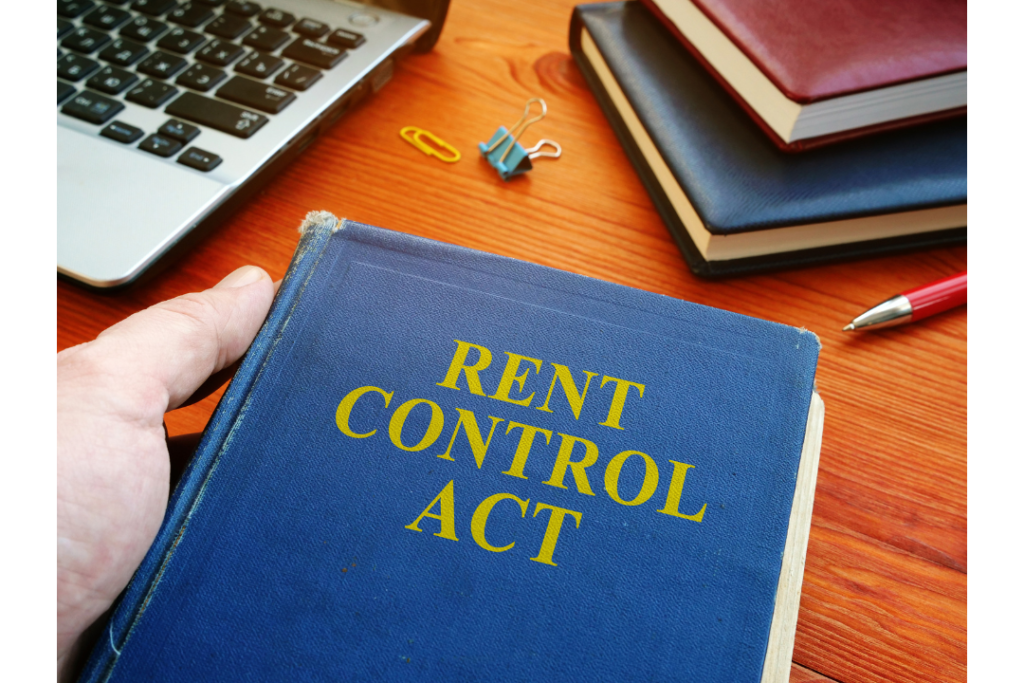
COMING SOON! RENT CONTROL
4 Actions to Take Now
There is a movement across the country asking for rent control. Have you seen it?
Some cities have imposed it.
Suddenly the threat is in our backyard.
In Florida, Orange County commissioners approved a rent stabilization ordinance to be placed on the ballot in November.
The Florida Association of Realtors and Florida Apartment Association have filed suit to prevent it from being on the ballot because it would be invalid under state statutes.
What will happen? Nobody can be certain until the case is heard in court.
HOW DID THIS HAPPEN?
Some cities in New York, California and Washington state have had rent controls for some time.
The idea has spread to other cities.
During Covid, trillions of dollars were printed and put into the economy to keep it moving. The increased money supply would eventually lead to higher inflation.
Gas prices doubled in the last two years before dropping some. But they remain 60-percent higher than they were.
The cost of feeding a family has also gone up as grocery prices are higher. Repair costs are also higher. Our cost to replace an air conditioner increased 40-percent.
Landlords have to raise rents to cover their increased costs. Taxes, insurance and repairs have gone up. And so has the cost of hiring good people. Have you seen the number of businesses who are trying to hire people?
But wages have not kept up with inflation. People are feeling squeezed by rising costs. And housing is typically the largest item in a household budget. This is particularly true in the niche of affordable housing. So the biggest monthly expense becomes a target.
We can understand why the topic of rent control has come up again during a time filled with economic challenges.
We also understand some of the possible consequences, if it happens.
CONSEQUENCES
So what are the real consequences of rent control?
When rent control is implemented, rents can only be increased a certain amount, which may be indexed to the Consumer Price Index, or CPI, or some other measure. Sometimes a maximum rent increase rate is stated.
We have looked at some properties that had residents who had housing assistance paid through HUD. This was another form of rent control as the rents could only be increased 3-percent per year and possibly adjusted more every three years. One in particular was suffering as repairs were not kept up. It appeared that the available cash flow was insufficient to maintain the buildings.
This is just one example of what happens across cities with rent control.
Many landlords seek to improve a property, raising the value and standard of living of its residents. But rent controls have the opposite effect. When a landlord is limited by rent controls instead of market conditions he loses incentive to improve a property.
In the end, the residents end up getting the rent control they asked for while the condition of their property may decline.
WHAT CAN INVESTORS AND LANDLORDS DO?
What can we do as investors and landlords to counter the threat of rent control?
One. We do not buy properties in areas that have rent control. Even the threat of rent control encourages us to look in more landlord-friendly markets. Many multi-family investors that I know who live near areas with rent control choose to invest in other states that are more favorable to landlords.
Two. Help our residents understand the basis for rent increases. On a rental increase letter we explain how our costs have increased for maintenance and repairs, insurance and taxes. And we show them the market rent for their residence, so they can see how they are still paying less than the market rate.
Three. Get involved with professional real estate organizations that stay abreast of political activity. This can include local investor and landlord associations who let their members know when new bills or ordinances are proposed at the state or local level. Some of these organizations will take action on behalf of their members. They may also identify specific officials to contact.
Four. Communicate with your elected officials. They need to understand the pitfalls of rent control and how it does not solve the problem of having a lack of affordable housing. Instead, it has the opposite effect for years to come as less housing becomes available and the available housing gradually declines. Developers will choose to build in areas that are more landlord-friendly. These officials need to encourage investment in affordable housing, not deter it.
CONCLUSION
The concept of rent control is taking root in more cities across the nation. As landlords and investors it is up to us to help educate our residents and elected officials regarding the need for rental increases and the negative effects of rent control.
HELP US GET TO KNOW YOU BETTER
Attune Investments provides a better return for our investors. And we make a positive impact in people’s lives and in our world.
If you want to learn more about how others are investing with us then we invite you to join our club and request a conversation with us. See below.
We have a meetup group called Strategic Multifamily Connections. We meet once a month on the 3rd Wednesday, from 12:00 noon – 1:00 p.m. (Eastern) on Zoom. If you would like to receive the zoom links, click: MEETUP ZOOM LINKS SIGN UP
Through the power of a syndication partnership with other investors like you, working with managing partners who are experienced in managing apartment complexes, you can own multifamily assets.
Or you can choose to loan money, get in with a clear return, and get out earlier.
If you haven’t already subscribed to our BLOG, you can increase your knowledge and comfort with this asset class by subscribing now. It’s free. We publish an article every week. SUBSCRIBE HERE And take one more step. Become a member of our ATTUNE INVESTORS CLUB in which you have more personal access to us. JOIN HERE.

Mike is a retired aerospace engineer with a passion for real estate investing and teaching financial literacy. He lives with his wife in Daytona Beach, Florida.

